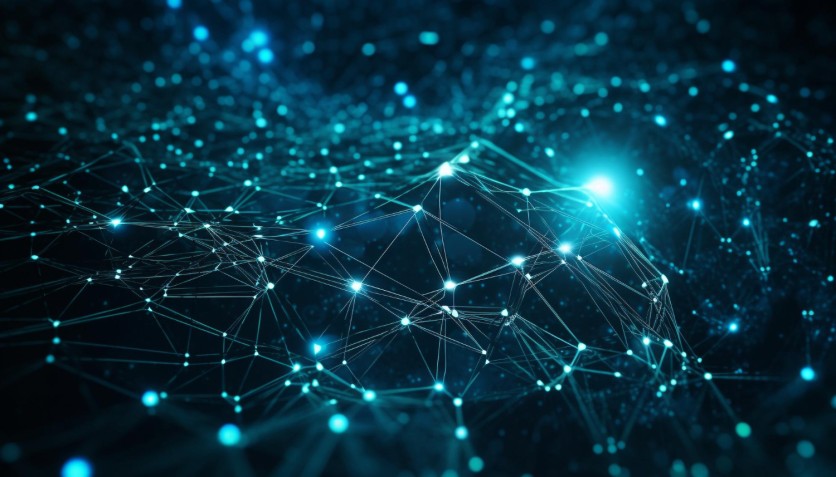
The intersection of blockchain technology and artificial intelligence (AI) has opened doors to a new era of innovation, where safety, accuracy, and data confidentiality are paramount. While the concept of integrating blockchain with AI is not new, recent advancements are paving the way for decentralized AI models with unprecedented capabilities. One example is consensus learning (CL), a new approach presented by Flare researchers where AI and blockchain technology are combined for safer, more accurate AI.
Explore how this fusion of technologies is reshaping the future of AI, unlocking new possibilities for safer, more accurate solutions.
Decentralized Collaboration in AI: Consensus Learning
Consensus learning (CL) harnesses blockchain technology to facilitate decentralized collaboration among AI models. At its core, CL operates on the principle of collective intelligence, where the individual AI models contribute their insights without compromising data confidentiality. This innovative methodology ensures that each participant retains control over their proprietary information while benefiting from the network's collective wisdom.
The CL process unfolds in two phases: individual learning and communication. During the individual learning phase, each network participant develops its AI model based on private data and publicly available information. This diversity in data sources enhances both the robustness and generalization capabilities of the overall AI system. Crucially, participants don't need to divulge sensitive data or proprietary algorithms, preserving privacy and intellectual property rights.
Following the individual learning phase, the communication phase comes into play, where participants engage in a collaborative exchange of insights through a secure consensus/gossip protocol. The models can share predictions and update them based on peer assessments. Through iterative exchanges, consensus gradually emerges, culminating in a unified decision that reflects the collective knowledge of the network. This decentralized approach fosters trust among participants and ensures the integrity and accuracy of the AI system.
Enhancing Security and Accuracy in AI
One of the most compelling aspects of integrating blockchain with AI is the significant enhancement it brings to security and accuracy. With consensus learning (CL), the collaborative nature of AI development is fortified through blockchain's inherent security features. By leveraging consensus mechanisms, CL ensures that the integrity of AI systems remains uncompromised, even against potential malicious actors or external threats. This robust security framework not only protects against data tampering or manipulation but also instills confidence in the reliability and trustworthiness of AI algorithms.
Moreover, the fusion of blockchain and AI addresses critical concerns surrounding data privacy and confidentiality. In traditional centralized AI models, data is often stored and processed in a single location, posing inherent risks to privacy and security. However, with CL, data remains decentralized and securely encrypted, preventing unauthorized access or breaches. This preservation of data privacy complies with regulatory requirements and fosters greater collaboration, mitigating concerns about data misuse or exploitation.
The accuracy of AI models is significantly enhanced through the collaborative learning approach. By aggregating insights from diverse sources and leveraging consensus mechanisms, CL enables AI models to learn from a broader spectrum of data and perspectives. This reduction of bias and variance leads to more robust and generalizable AI solutions that are capable of addressing complex real-world challenges with greater precision and reliability. Consequently, data-sensitive industries such as healthcare and finance can derive actionable insights and make informed decisions, confident in the accuracy and integrity of their AI-driven analyses.
Comparing Decentralized and Centralized Models
When comparing decentralized and centralized models in the realm of AI, it's important to consider not only their technical architectures but also their implications for scalability, data privacy and governance. Companies like Google and OpenAI deploy centralized AI models, leveraging vast datasets and sophisticated algorithms to deliver tailored recommendations, predictions and services. While centralized models offer streamlined management and scalability, they also raise concerns regarding data privacy, as centralized repositories become lucrative targets for malicious actors seeking to exploit sensitive information.
Decentralized AI models present a paradigm shift in AI development by distributing data and computation resources across a network of participants. This decentralized approach not only enhances scalability by leveraging distributed computing but also addresses concerns surrounding data privacy and security through encryption and consensus mechanisms. By dispersing data across multiple nodes, decentralized models reduce the risk of single points of failure or malicious attacks, thereby fostering greater resilience and trust in AI systems. Projects that have integrated AI with decentralized networks include Bittensor, which facilitates AI model outputs by weighing the predictions of participating miners, and Ritual, a marketplace for machine learning models. Another example is HyperCycle, a blockchain network that provides massively scalable, low-cost infrastructure for decentralized AI.
Furthermore, decentralized models offer unique advantages in terms of governance and adaptability. In centralized AI architectures, decision-making authority rests with a single entity or organization, leading to potential conflicts of interest or biases in model development and deployment. In contrast, decentralized models promote democratic governance, allowing contributors to participate in decision-making processes and contribute their insights transparently. This distributed governance model not only enhances accountability but also encourages innovation and collaboration among a diverse group of contributors, driving the evolution of AI solutions that better serve the needs of society as a whole.
Looking Ahead
The integration of blockchain and AI is driving innovation across a wide range of sectors. By enabling secure collaboration and preserving data confidentiality, blockchain-integrated AI opens doors to new possibilities for safer and more accurate solutions.
As we look to the future, the potential of using blockchain-integrated AI for data-driven decision-making is limitless. By leveraging and advancing consensus learning and decentralized models, we can create safer, more accurate AI solutions that prioritize data confidentiality and trust. The journey toward harnessing the full potential of blockchain for AI is underway.
ⓒ 2025 TECHTIMES.com All rights reserved. Do not reproduce without permission.




